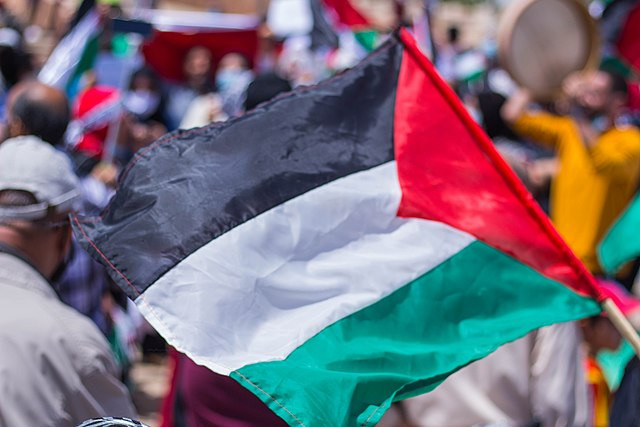In a landmark decision, the International Court of Justice (ICJ) declared Israel's presence in the occupied Palestinian territories to be "unlawful" and demanded an immediate halt to settlement construction. This unprecedented ruling by the United Nations' principal judicial organ has sparked intense reactions from both Israeli and Palestinian leaders, potentially reshaping international perspectives on the longstanding conflict.
The ICJ's sweeping condemnation centers on Israel's policies in the West Bank and East Jerusalem, territories it captured during the 1967 Mideast war. The court identified a range of violations, including the construction and expansion of Israeli settlements, exploitation of natural resources, and the imposition of permanent control over these lands. "The Jewish people are not conquerors in their own land," stated Israeli Prime Minister Benjamin Netanyahu, firmly rejecting the court's opinion as "false" and historically inaccurate.
Netanyahu's denunciation underscores Israel's stance that these territories are integral to its historic homeland. The Israeli government, which typically views UN bodies and international tribunals as biased, chose not to send a legal team to the hearings, instead submitting written comments. Israeli officials argue that the court's intervention undermines the peace process, which has been stagnant for over a decade.
Conversely, the ruling was hailed as a significant victory by Palestinian leaders. Riad Malki, an adviser to Palestinian President Mahmoud Abbas, described the opinion as "a watershed moment for Palestine, for justice, and for international law." Malki emphasized the necessity for other nations to uphold their obligations as outlined by the court, urging them to refrain from supporting Israel's occupation.
The ICJ's opinion, although non-binding, carries substantial moral authority and could influence international law and policy. The court's president, Nawaf Salam, articulated that Israel's actions, including large-scale land confiscations and discriminatory practices, violate fundamental principles of international law and impede Palestinians' right to self-determination.
The court's decision arrives against the backdrop of heightened tensions, marked by Israel's recent military operations in Gaza following attacks by Hamas. This context further complicates the already fraught Israeli-Palestinian relations and highlights the broader implications of the court's ruling.
The ICJ's mandate extends beyond the immediate cessation of settlement activities. It calls for the removal of existing settlements and reparations for damages incurred. This aligns with a prior 2004 ICJ advisory opinion, which deemed Israel's West Bank separation barrier illegal and called for its dismantling. The current ruling, however, goes a step further by unequivocally stating that Israel must withdraw from the occupied territories as rapidly as possible.
International reactions have varied. Some experts, like Erwin van Veen of the Clingendael Institute, believe the ruling could further isolate Israel on the global stage, particularly in legal and diplomatic arenas. "This decision removes any kind of legal, political, or philosophical underpinning of the Israeli expansion project," van Veen noted, suggesting it might spur more countries to recognize a Palestinian state.
Despite the ICJ's clear stance, the path to implementation remains uncertain. The ruling's enforcement relies on the UN General Assembly and Security Council, where the United States, a staunch Israeli ally, holds veto power. This geopolitical reality complicates efforts to translate the court's moral and legal directives into tangible actions.
Israeli Finance Minister Bezalel Smotrich, a former settler leader, dismissed the court's decision, calling for immediate annexation of the West Bank. "The answer to The Hague - sovereignty now," Smotrich declared, reflecting the hard-line stance of Netanyahu's government, which is heavily influenced by settler interests.
For the Palestinians, the ICJ's ruling is a beacon of hope amidst decades of occupation and conflict. They seek the West Bank, East Jerusalem, and Gaza for a future independent state, with East Jerusalem as its capital. Israel's annexation of East Jerusalem and the establishment of settlements in disputed territories have long been contentious issues, viewed by the international community as obstacles to peace.




